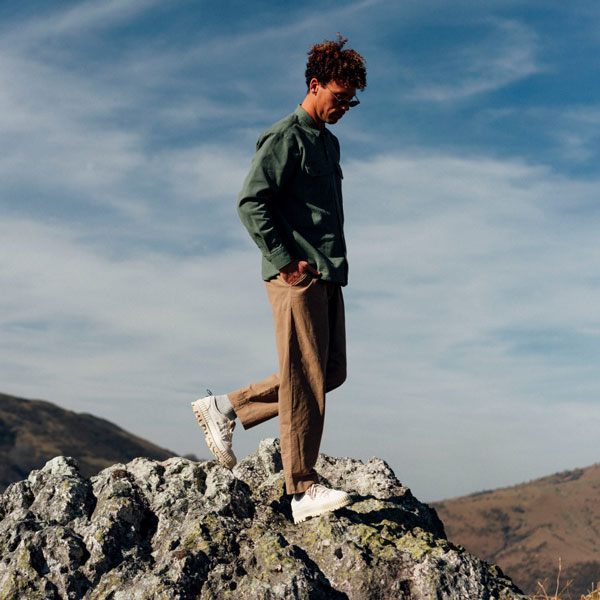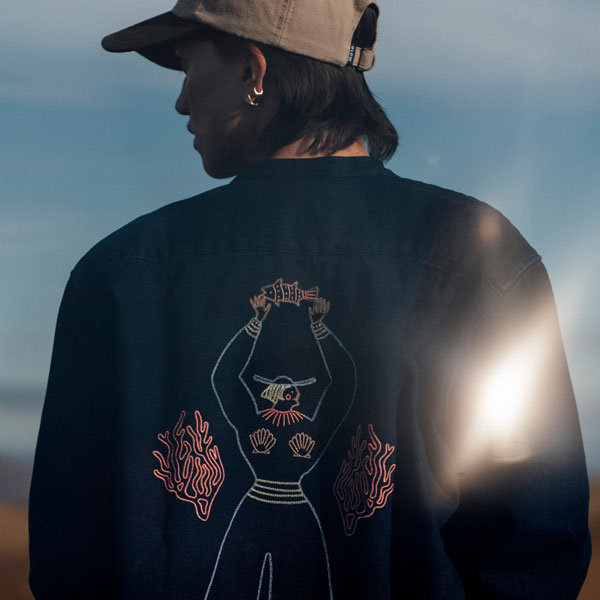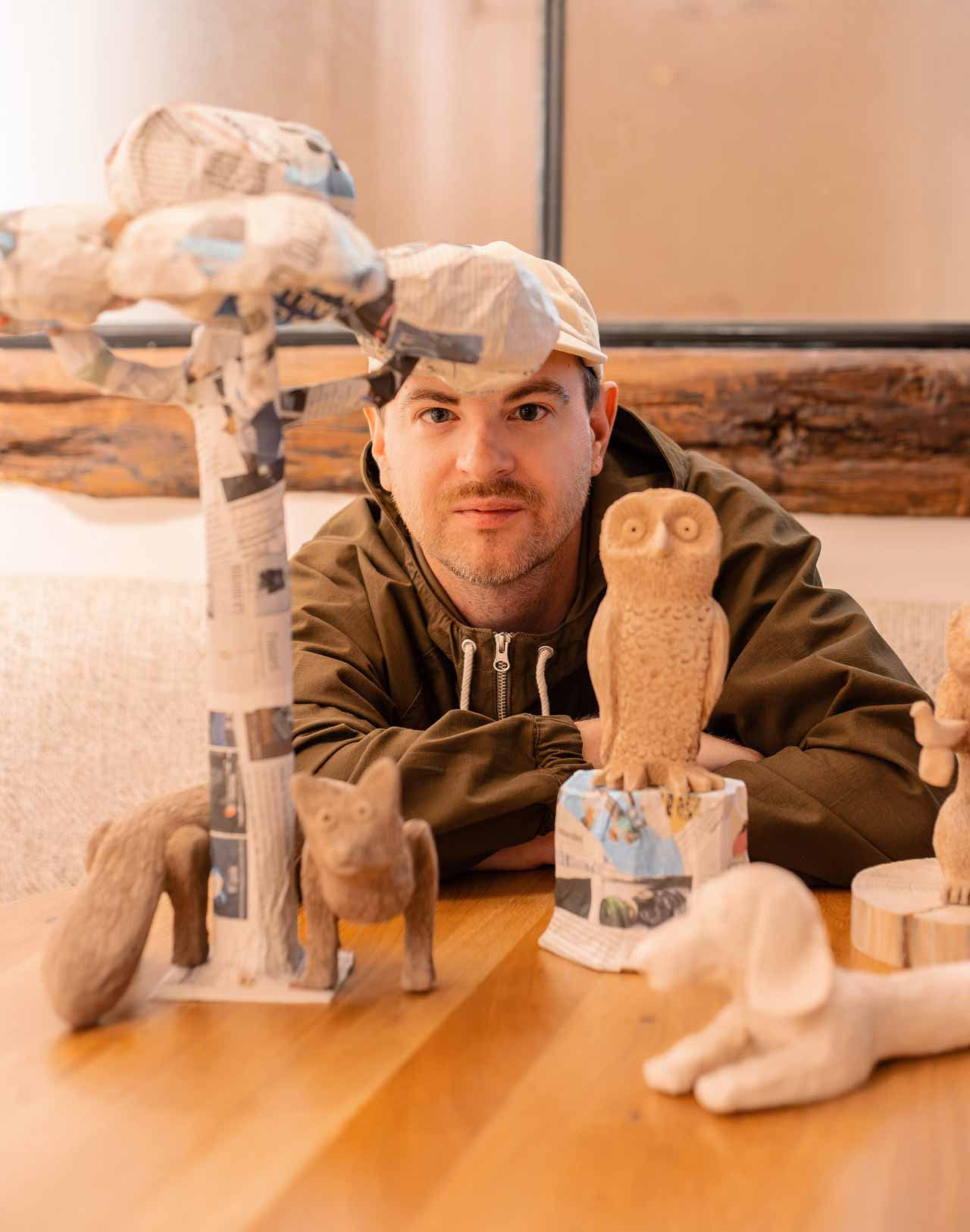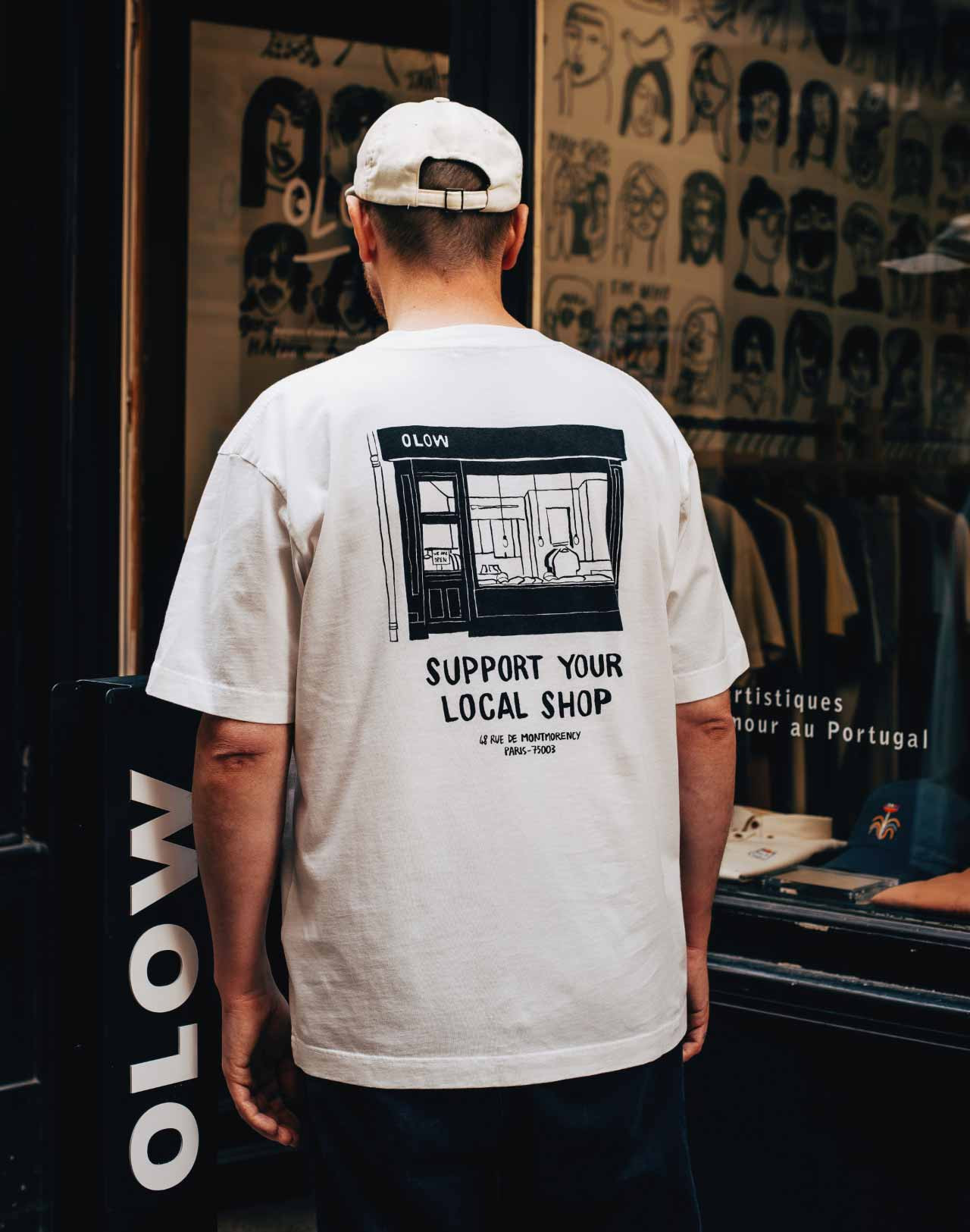OLOW x IGUAPOP
For this Spring/Summer season, Iguapop in Barcelona has a new shop window starring OLOW! Created by a group of students from the Elisava School of Design in Barcelona, who won a contest to conceive their Liquid Modernity concept, the window was inspired by a saying found in the catalogue of our Marée Basse collection: “Une mer calme n’a jamais fait un bon marin”, or “Smooth seas never made a skilled sailor”.

This concept portrays a sailor who tries to navigate through society, trying to keep his principles afloat despite the storm. To reinterpret this society, the students were inspired by Zygmunt Bauman’s book Liquid Modernity, which introduced this idea of liquid modernity: a society represented by a man faced with uncertainty and ambivalent feelings, a nomad, a man with no traditional patterns but self-chosen ones, with an emphasis on change and an immersion into the fast-paced consumerism of our time.

The changing and tormented seas are thus a metaphor for this society and its volume economy. On the contrary, OLOW, the sailor, portrays “slow fashion”, transmitting more traditional and honest values, prioritising to quality over quantity.
This idea shapes the showcase in the Iguapop Shop, which a few years ago was also a contemporary art gallery and still maintains that essence. With the proposed design, the shop window forms part of the shop’s interior, creating a specific space for the brand within its commercial space.

We at OLOW are incredibly pleased and flattered to be the window’s guest of honour, so we decided to interview the talented designers to get to know them more and better understand their concept. We also asked Eva Lluch, Iguapop’s owner, a few questions about her shop and her desire to feature art prominently inside it.

Hello everyone! You are students at the Elisava School of Design in Barcelona; could you tell us about yourselves and how you feel upon designing this incredibly creative and beautiful window?
Hello! For us, the success of our project is thanks to the team members. We are a mix of personalities and all have our own distinct abilities. The fact that we come from such varied backgrounds and are of different ages was definitely key: Anayansi Diaz is a 24-year-old industrial designer from Mexico DF, Marta Meléndez Rújula is also 24 and an industrial design engineer from Zaragoza in Spain, Joaquin Acevedo Cordon is a 31-year-old industrial designer from Chile and finally, Micaela Seresini Fernandez is a 28-year-old architect from Mar del Plata in Argentina.
Having diverse understandings and multiple points of view on one same brief and concept gave us infinite options and ideas to explore! On the other hand, we think work relies on the exploration of how we construct our identities and how we all have a fascination for speculating over the “FUTURE”.

What was your starting point to the concept? What was your main inspiration?
From a very personal point of view, the catalogue’s aesthetic with its very evident marine theme was the trigger. The proverb “Une mer calme n’a jamais fait un bon marin” (“Smooth seas never made a skilled sailor”) was definitely an inspiration. Every single thing we thought about orbited around the idea of the sea and the various difficulties a sailor could face. This visual imagery was fused with Zygmunt Bauman’s “Liquid modernity” theory that portrays the characteristics of a postmodern society and its constant search and thirst for change.

How long did the creative process take?
It took about three weeks. We brainstormed ideas for about a week, and once we had the idea and concept it took us the remaining two weeks to project the idea and determine whether it was actually doable in terms of cost and materialisation.
What do you want to say through this installation?
The main message, besides obviously talking about OLOW as a brand, was to make a statement against our current lifestyle and society. The upper structure represents our consumer society and the liquid modernity phenomenon: we are constantly changing and eager to always have the newest things; while the wooden cube calls to mind the timeless aesthetics of well-made products that last and are fashionable no matter the time and context.
Technically, how did you create it?
Once we had the idea and concept, everything came quite easily. The upper structure was a simple but very exhaustive exercise in parametric design. A sea wave was the core of this installation. We drew this trigonometric function curve (F(x)=cos x) to determine the lateral view and overlap it with a simple quadratic function (F(x)=x2). After this was settled, we had to work with the individual dimensions of the fish bags to determine the space between each bag on the x, y, z plans. That was the most complicated… along with the logistics of how to execute it in real life. The cube that represents OLOW and its values is a beautiful piece of woodcraft.

What did you learn from this experience?
That different is always good, that change is imminent but does not imply creating just to create. And that making things correctly and with passion is the key to success.

Eva Lluch is the manager of Iguapop in Barcelona. The shop now has an OLOW-inspired window created by a group of talented, young designers. We asked her a few questions concerning this great project.
Your shop used to also feature an art gallery; are you passionate about art and is it your wish to continue to promote all kinds of art forms? Is it important for you to give these kinds of opportunities to young designers?
Yes, of course, our store is linked to the culture of art and design. We have organised several art exhibitions and asked different artists to create textile caps for us. We like to galvanize our space with art and design-related events.





